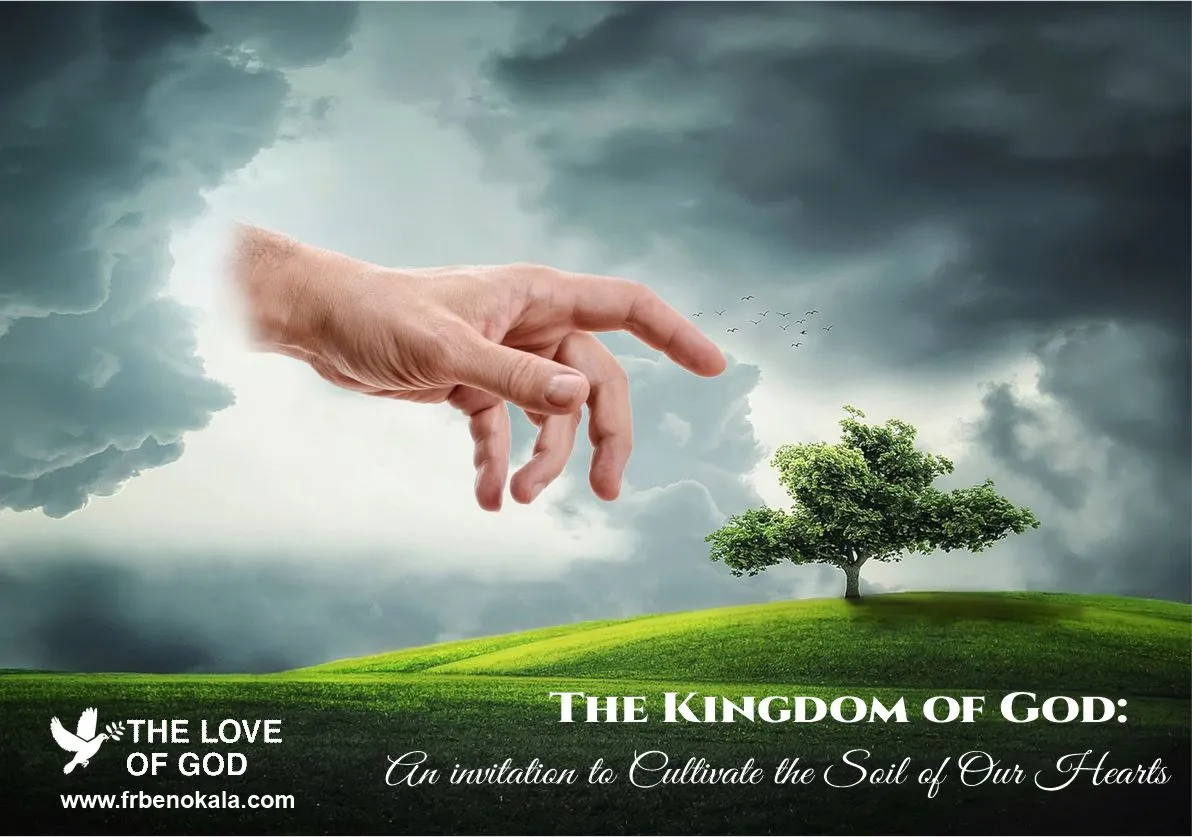HOMILY OF 3RD SUNDAY OF EASTER, YEAR A
First: Acts 2:14, 22-33; Second: 1 Peter 1:17-21; Gospel: Luke 24:13-35
Life is a journey that is saturated with a plethora of vicissitudes, wherein we encounter countless surprises, misfortunes, and challenges that can shake the very foundation of our faith. These experiences can leave us questioning the very presence of God in our lives, or even His very existence. It is in these moments of doubt and uncertainty that we must remember that our journey is not meant to be traveled alone.
Of Course, we have a God who walks with us every step of the way, even when we do not see or feel His presence. In this homily, we shall explore how to recognize and walk with the risen Christ, just like the disciples on the road to Emmaus, who encountered the risen Christ and were transformed by their encounter.
Emmaus Experience:
In today’s gospel reading, the disciples of Jesus Christ were disappointed because of His passion and death on the cross. They thought that all hope was lost. Even when they heard from Mary Magdalene that He had risen from the dead, they were still doubtful. When they were traveling to Emmaus, they encountered a strange man who happened to be the risen Christ, but the disciples did not recognize Him initially. Even when He led them through the scriptures and explained everything that had been written about Himself, they could not recognize Him. It was only when Jesus Christ broke bread (the Holy Eucharist) with them that their eyes were opened and they recognized Him. This encounter transformed their lives, and they immediately returned to Jerusalem to share the good news with the other disciples.
Obstacles to Recognizing the Risen Christ

Just as the two disciples of Jesus Christ on the road to Emmaus were slow to recognize Jesus, we too can sometimes be slow to recognize Christ’s presence in our lives. We may encounter Him in the Holy Eucharist, in the Scriptures, or in the people around us, but we may not always recognize Him. Perhaps the vicissitudes of life tend to cloud our minds and make us forget that God is always present with us (Isaiah 43:1–5; Romans 8:31–37). Meanwhile, the obstacles to recognizing the Risen Christ can vary from person to person. Some common obstacles include:
1. Doubt: Doubting the existence or divinity of Christ can hinder one’s ability to recognize Him in everyday life.
2. Distractions: Being too focused on material possessions or personal problems can distract from the spiritual realm and the presence of Christ.
3. Sin: Engaging in sinful behavior can create a barrier between oneself and God, making it harder to recognize His presence.
4. Lack of faith: A lack of faith or spiritual practice can make it difficult to recognize the presence of Christ in everyday life.
5. Negative influences: Surrounding oneself with negative influences or people who do not share the same spiritual beliefs can make it harder to recognize the presence of Christ.
6. Fear: Fear of the unknown or fear of change can prevent one from recognizing the presence of Christ and accepting His guidance.
7. Pride: Pride can lead to a sense of self-sufficiency and independence, making it difficult to recognize the need for spiritual guidance.
It is important to acknowledge and address these obstacles in order to better recognize and walk with the Risen Christ in everyday life.
The Power of the Holy Eucharist:

The Holy Eucharist, which is the source and summit of the Christian life and a central part of the Catholic faith, is the very sacrifice of the Body and Blood of our Lord Jesus Christ. He instituted it to perpetuate His redeeming sacrifice on the cross. Undoubtedly, Jesus Christ is still visibly present in the church and continues to reveal Himself through the Holy Eucharist (breaking of bread).
In other words, He continues to reveal Himself and feeds His people through His “word” and “sacrament.” When carefully examined, today’s readings and the entire Scripture tend to prepare us for a special encounter with the resurrected Christ in the Holy Eucharist. Besides, just as the disciples’ eyes were opened when Jesus Christ broke bread with them, we too can have our eyes opened to the risen Christ when we encounter Him in the breaking of bread, in the Scriptures, or in the people around us (Matthew 18:20).
In the first reading, St. Peter was filled with the Holy Spirit and was courageous enough to proclaim the good news of the risen Christ despite the challenges he was facing. Of course, the disciples were disillusioned and afraid after Christ’s death, but after the Emmaus encounter and subsequent encounters at the breaking of the bread (Holy Eucharist), they were empowered via the Holy Spirit. Therefore, suffice it to say that the easiest way to experience the presence of God is through the scriptures and fully in the Holy Eucharist (the real presence of God).
How can we recognize and walk with the Risen Christ in everyday life?

We can recognize and walk with the Risen Christ in everyday life in many ways, especially through these seven (7) highlighted points:
- Cultivating a spirit of gratitude and praise: Gratitude is a powerful catalyst for igniting the light of the soul. It is one of the fastest ways to draw down the presence of God. As the scripture says, “Give thanks in all circumstances; for this is the will of God in Christ Jesus for you.” (1 Thessalonians 5:18). “The Lord is enthroned at the praises of His people” (Psalm 22:3). Paul and Silas were freed from prison when they were praising God (Acts 16:25–26). Also, Jehoshaphat and Joshua gained victories over their enemies through praise (2 Chronicles 20; Joshua 61-27).
- Opening our hearts to Christ’s presence: We need to open our hearts to God and be ready to encounter the risen Christ in our lives. Just as the scripture says, “Behold, I stand at the door and knock; if anyone hears my voice and opens the door, I will come into him and eat with him, and he with me” (Revelation 3:20).
- Frequent Confession: Going to sacramental confession frequently is a means of performing a spiritual cleansing of our souls. It also opens the door for God to have access to our lives and endow us with superabundant blessings (Isaiah 59:1-2; 1 John 1:9–10).
- Seeking Christ in the Scriptures: The Bible is the primary way in which we encounter Christ. We need to create private time for scripture readings and meditations. As the scripture says, “Study, as a workman who is not ashamed of his work…” (2 Timothy 2:15). Also, the entrance of the Word of God brings light; it is spirit and life (Psalm 119:130; John 6:63).
- Participating in the Holy Eucharist: This is the fastest way to encounter the Risen Christ. During the Holy Eucharist, there is always a marriage between divinity and humanity, and the presence of God is always immanent. As Jesus said, “This is my body, which is given for you. Do this in remembrance of me” (Luke 22:19). The disciples devoted themselves every day to the celebration of the Holy Eucharist and thus experienced tremendous miracles (Acts 2:46–47).
- Always praying for the grace to recognize Christ’s presence: We need to always ask for God’s grace to help us recognize the Risen Christ in our lives. As the Psalmist said, “Open my eyes, that I may behold wondrous things out of your law” (Psalm 119:18).
- Serving others with genuine love: We can encounter the Risen Christ in those we genuinely love, especially when we serve those in dire need as well as care for and support them. As Jesus said, “Truly, I say to you, as you did it to one of the least of these my brethren, you did it to me” (Matthew 25:40). Also, St. John avers that, “If anyone says, ‘I love God,’ and hates his brother, he is a liar; for he who does not love his brother whom he has seen cannot love God whom he has not seen” (1 John 4:20).
In his exhortation, St. Peter reminds us in the second reading that the death of Jesus Christ has redeemed us from eternal damnation, not with perishable things such as gold or silver but with the precious blood of Christ, like a lamb without blemish or spot (1 Peter 1:18–19). So, let us always seek His presence in the breaking of bread, in the Scriptures, and in the people around us.
Conclusion:
My dear brethren, having gone through this homily, I believe that with the help of the Holy Spirit, we have been able to identify the obstacles that prevent us from recognizing the risen Christ and how to recognize and walk with Him. Since we have been reminded of the importance of walking with the risen Christ on our own journey of faith, let us always be open to encountering Him in the Holy Eucharist (breaking of bread), in the Scriptures, and in the people around us. Also, let us be mindful of the struggles and doubts that we face on our journey of faith, just as the disciples of Jesus Christ on the road to Emmaus struggled to recognize Him.
Nevertheless, we are encouraged by the perseverance and willingness of the disciples to always share the good news with others, no matter the difficulties we may encounter. As we deepen our relationship with Jesus Christ, let us also be mindful of the practical ways that we can live out our faith in our daily lives, especially the points on how to recognize and walk with the Risen Christ in everyday life. No matter the vicissitudes of life, let us move courageously with the assurance that Christ is always with us, walking with us on our journey of faith (Matthew 28:20).
Prayer:
May your encounter with the risen Christ transform your life and fill you with renewed faith and hope, in the name of the Father, and of the Son, and of the Holy Spirit, Amen.
Peace of Christ be with you…
Rev. Fr. Ben Okala, C.S.Sp.[/read]




